
Discover more from DARK FUTURA
One of the most epistemically dangerous phenomena of our day is the imperceptible metamorphosis of concepts we once knew, and took for granted, into something entirely different, while retaining their original outward mask. This new thing now escapes our grasp because we’ve fallen into the semiotic trap of understanding a thing by its appearance or name, rather than by what it does.
We should always strive to cut through perceptual biases to understand the underlying basis of reality before us. If thousands of years ago, humans called the color of the sun red, but over the course of hundreds or thousands of years began to call it green, it would represent a lacuna of apprehension—a discontinuity in the to-then unbroken thread of epistemic cohesion which would lead to the distortion of knowledge and historical understanding. It’s akin to Giambattista Vico’s concept of the ‘barbarism of sense’ which, in the developmental cycle of civilizations, is succeeded by the ‘barbarism of reflection’:
Vico’s theory suggests that history begins in a barbarism of sense, characterized by a lack of reflection and dominated by imagination and myths. It ends in a barbarism of reflection, where over-analysis and individual interests break down the common sense and shared values established by society.
Concealed in this deliberate over-complication are the kernels of the original truth. This is the crisis we find ourselves in today when it comes to the modern concept of a corporation: what exactly is a corporation? What is its purpose, in the modern world?
Today things flow with the exponential rate of rapids tumbling down a cliff. Long ago, it took generations for an idea to change, to shift so drastically as to be unrecognizable from its earlier essence. This allowed time for us to diachronically adapt new identifying conventions after carefully observing its metamorphosis over a long period.
Now, things change so rapidly we’re often left holding the bag of previous preconceptions, unable to adapt our cognitive framework in time to keep up. This leaves us in a state of epistemic haze, then ultimately, a blind delirium. Think of vaccines and how quickly they were redefined and subsumed into gene therapy, confusing terminology, language, and understanding—and deliberately so.
The same wool is being pulled over our eyes when it comes to corporations. Companies are slowly mutating into something no longer resembling the idea ingrained in us—their original Form. Tangled in modernity’s oppressive barbarisms of reflection, we lack the clearsightedness and epistemic coherence to properly assess their new natures in a way that provides true teleological understanding.
Millennia ago, when the first local motions of what might be deemed proto-businesses had begun self-assembling in the hamlets and farmsteads of our antediluvian past, the direct functions of these basic transactional structures were clear to see and understand: they served the community around them with a sympathetic link, such that, should anything go awry, it would directly affect the business itself. There was an immediacy in the chain in the form of a feedback loop: when a proprietor served his customers directly, knowing each of their names and faces, accountability naturally sprung from this fount. Should the product or offering have brought harm, immediate reprisal could be swiftly dealt unto the proprietor by the vengeful village ‘customers’ armed with stones and clubs.
Over generations, companies began to insulate their accountability beneath a growing layer of screens. First the boss may have hired a satrap intermediary to dole out the goods while the boss tended to important clerical and administrative duties. Eventually, as the companies grew in size, it progressed to regional nodes or branches stewarded over by an impenetrable bureaucracy which shielded the owners from the negative sentiment and reprisal the company’s unethical conduct may have engendered.
We find ourselves in an age where corporations have effectively erected endlessly byzantine accountability distribution webs of administrative barriers between themselves and society, to keep their leadership totally absolved from the increasingly inhumane actions they’re required to take to stay ahead of competition. This fosters a natural progression of cutthroat immorality that’s simple to envision: Operating outside the “rules” of any system will always give advantage to the transgressing operator. Rules are established for fairness, and to protect the smaller and weaker, from allowing runaway indiscretion spurred by amoral vultures from devolving the ‘system’ into mayhem and anarchy.
The problem is a classic one: I’ve cited baseball before as an example. In the 90s, certain homerun hitters dominated the league by juicing up to the gills. In order to compete with them, other top stars had no choice but to juice themselves up—e.g. McGwire and Sosa. It encouraged a runaway ‘power creep’ where, in order to stay ahead, each side had to continually out-cheat the other to keep up with a competitor willing to spare no effort regardless of its illegality.
Cue corporations: the more accountability “screens” they fashion between themselves and their customers, the more it allows amoral and illegal behavior to go unpunished. The more this behavior goes unpunished, the more it acts as a ‘reward mechanism’ to the leadership of the company. Over time, this creates a natural feedback which attracts the increasingly immoral and psychopathic who see unfettered access to boundless advancement—and here’s the important part: they do much better than their competitors because they skirt more rules, break more eggs, operate with fewer restrictions overall. The board sees this success, and it incentivizes the recruitment of more such personalities; it’s a logical chain of consequences.
Competing companies see you succeeding and soon cotton on to the ‘secret’. They follow the lead to stay competitive, and voila: we have the selfsame ‘power creep’ described in the baseball example—with each corporation being virtually forced to become progressively more evil in order to retain their market share. Apply this model to how Google, Apple, Microsoft, the current crop of AI companies, etc., all compete with each other, and you will have a lucid framework for the last two decades of societal development which, for instance, explains why, since the inception of social media, our data has been so thoroughly and illegally exploited by BigTech.
Now in order to achieve their fabled AGI—already spun into a Rapture-like quest, of sorts—the limits have to be pushed beyond cultural guardrails and human comfort levels, spurning tradition like it were merely roadkill on the shoulder, just to eke out the last drop of advancement possible. Compute and data corpus walls are already being hit, and in their sheer zealotry the vulture capitalist technocrats will need humans themselves as vessels or hosts to breach the bottleneck. The portrait of a demented scientist feeding puppies to his little pet chimera velociraptor while toothily beaming comes to mind. To these madmen we remain only as fodder for the race of conquest pitting transhuman elites against each other. Going forward, every business and product decision will be made solely at the priority of their models and algorithms, no matter how pernicious to us, our privacy, security, or social and cultural cohesion.
These corporations are now converting our human biomass into extractive hosts for the rentier class. Blindsided, we stumble ahead under the spell of outdated conceptions, perceiving their structures with the rose-tinted paradigms of ages past: companies as units of organized production conscientiously fulfilling customer demands for fair transaction. All the while, beneath the scriggling sheaths of their cocoons, they’ve long mutated into some other monstrosity.
Companies began to globalize, uprooting themselves from the local culture and community, no longer beholden to those responsible for their early spark. Now they could operate under the illusion of serving the community while in actuality enriching themselves from the global pot, at the expense of the local nomoi. The latest trend sees companies like Apple, Adobe, and many others transition their business models into AI training farms. Their ‘products’ and apps may bear resemblance to those of the past, but it’s clear they now serve an entirely different purpose and ethos.
Adobe made waves this week with their foisting of a highly controversial new TOS onto customers, which forces them to sign away creative rights to anything they generate within the Adobe ecosystem of programs and apps.
Most have rightfully surmised the intent being the sake of training AI models to not only enable Adobe to aggressively compete with the pack, but to also potentially unlock a massive new profit stream by pimping the highly-sought-after customer data to larger AI corps.
This latest has even spurred artists to begin using ‘data-poisoning’ apps like Nightshade to sabotage AI scraping of their art:
A new tool lets artists add invisible changes to the pixels in their art before they upload it online so that if it’s scraped into an AI training set, it can cause the resulting model to break in chaotic and unpredictable ways.
The tool, called Nightshade, is intended as a way to fight back against AI companies that use artists’ work to train their models without the creator’s permission. Using it to “poison” this training data could damage future iterations of image-generating AI models, such as DALL-E, Midjourney, and Stable Diffusion, by rendering some of their outputs useless—dogs become cats, cars become cows, and so forth.
The sheer cost of training AI models has spiralled into an exorbitant bottleneck, reportedly running into the hundreds of millions to train each new iteration. These companies hungrily lust after endless corpora of data to eke out ever-more incremental boosts to their digitally-chained emergent genies. AI outfits are left with no choice but to surreptitiously partner with adjacent tech corps with access to vast pools of customer data to convert them into training farms without their knowledge in order to offset the cost of improving models.
This fact was epitomized by Apple’s latest announcement at the 2024 WWDC (Worldwide Developers Conference) of their partnership with OpenAI, whose ChatGPT system will now be pullulating throughout the latest Apple OS, controlling every aspect of the apps and tools and invigorating SIRI with a plethora of powerful new capabilities—or so the PR copy goes. The problem is, the likely purpose of the partnership includes the quid pro quo access to OpenAI for all of Apple’s vast customer base, which will give OpenAI’s models inordinate mountains of new training data—the liquid gold of current tech currencies. This comes at the cost of our privacy, as the AI will have access to every intimate detail of our personal lives through the Apple ecosystem.
It’s only natural that OpenAI has concurrently announced the hiring of the literal director of the NSA to their board, justifying the meme below:
Just like Microsoft’s latest announcement that the new Windows will have an infinite ‘capture’ mode that will record everything you ever do on the screen in order to feed it into an AI ‘assistant’ that can recall your entire digital history to better understand and assist you, here too Apple now plans to give Siri total access to your life:
Apple Intelligence will allow Siri to have on-screen awareness and take actions on a user's behalf
Apple Intelligence feature in Mail understands the content of emails and surfaces the most urgent messages to the top of inboxes
Since Apple Intelligence understands personal context, AI-generated images can be personalized to users
See where this is going?
The AIs are gaining access to the last vestiges of our private lives, but in a more dangerous way than previously attempted by perennially overstepping BigTech. Over the past decade we’ve been been inundated with increasingly invasive mechanisms and services, usually without the ability to opt out, and almost always sold as being ‘for our safety’; for instance, Meta’s announcement that all private Facebook messages would be scanned for illegal content like child abuse, with Gmail following suit.
But the latest AI blitz crosses a new Rubicon: instead of mere blanket access to our raw, un-organized data, AI will allow corporations to intelligently subsume and analyze it into predictive profiles that give them never-before-seen insight and power over our lives, effectively destroying the last semblance of privacy once and for all.
Slowly but surely the Techs are turning their products into breeding farms with us as the lek.
Ask Apple Intelligence a questions about your files and get answers. You'll be able to ask for things like: • A document sent by a colleague last week • Play a podcast your friend recommended • Find photos with specific people in them
Apple’s latest announcement even has the establishment media worried. Atlantic’s latest calls it an AI Trojan horse:
Already last month, Google began forcing AI-written responses upon 1 billion users of its search engine. The results, including medical misinformation, conspiracy theories, and plain nonsense, were so embarrassing that the company quickly appeared to roll back the function, at least temporarily.
The irony isn’t lost on us that the Atlantic itself is a Trojan horse, given that its editor-in-chief is infamous arch neocon and suspected Israeli agent Jeffrey Goldberg, who was foremost in leading America into the PNAC wars of the 2000s era; but that’s a tale for another time.
As we transition into an age of low productivity and total tech and services supremacy, the corporations which own the data centers and training sets will be custodians of the world, with nothing to stand in their way. The top four richest companies on the planet are now tech related, with those actually producing useful things falling off the list:
We’ve become an extractive rentier economy where top transnational corps compete against each other in an exponential race to dominate the final resource of value: data—with us as consummable currency merely for exploitation. They will of course structure the digital paradigm in such a way as to make being “plugged into” their system as compulsory as possible in order to thrive, or even subsist, in society at all. People who do not ‘voluntarily’ give up their existences to being farmed by advanced AI algorithms will be out-competed and deemed obsolete, the same as anyone without a SmartPhone these days looked down upon as some sort of pariah, and even prevented from partaking in segments of society.
And what abetted this techno-coup? As mentioned in the opening, ‘enterprises’ began as organizations once tied directly to the local culture, the communal stream, sinking or swimming with the health of the ‘customers’, who were likely family, friends, and other loved ones; accountability was built into the system. Allowing corporations to become “transnational” was the biggest mistake in history: it enabled companies to lose their anchoring, their stake in the societies they were meant to serve, and necessarily turns them into faceless, amoral extraction engines serving no system of values or expressions, but rather some abstracted goop—the deracinated global techno-ecumenism where culture is merely an additive, a superficial flavoring meant to make the ‘product’ more palatable—and profitable. To become truly “transnational”, corporations had to abrade themselves of all intrinsic local ‘values’ and cultural markers in order to serve “all”, rather than the ‘few’, to maximize reach and profits.
In this way, we see corporations no longer adhering to any local set of principles, cultural, ethnic, or otherwise—it’s why Google and every major U.S. corporation has been slowly overtaken with Indian CEOs, or some other exogenous subset. This is techno-ecumenism at its worst—or best, depending on your view. The Chinese economic model works because there is an ethnic-cultural loyalty of the proprietors to their milieu, the stakeholders—one that is compounded by tighter governmental reins on the corpos no matter how ‘powerful’ they may be.
In the West, corporations have become something else—we may look at them and see our long-ingrained conception of a company creating a product to serve the customer, adhering to local traditions; but they have slipped unnoticed into an entirely different thing. There is no longer connection to customer, the organically reactive market-driven process of customer feedback, improvement, and delivery. There is just an impure front of pretended ‘local ties’: we see big corps make their sweeping ‘Americana’ commercials filled with brawny trucks towing banderoles of dust as mustangs charge in their wake, manes snapping in the wind. The same totally principle-less company will then pump PRIDE agitprop elsewhere, while tuning their offerings in Saudi Arabia with a completely different slant. It’s nothing more than soulless virtue signaling by corporations which have outgrown their mythos to become alien entities masquerading in our midst, appropriating anything deemed profitable in our society.
Now there is merely the growing cult-like Faith driving these increasingly detached and disconnected tech Messiahs and their acolytes into some far-off Utopian dream, which they’re obliged to push on us with a fanatical certainty of vision. And this is the future of the tech company. I recall a convincing sermon about how the most successful companies operate as faith-based cults: the visionary leader breeds a religiose reverence amongst his fanatic following, facilitating a singular unity of vision unmatched by regular organizations. It’s why they structure their tech campuses like weird new age Utopian cults, virtually trapping the faithful devotees in the insular compound which breeds its own strand of spacey egalitarian culture totally removed from normal rooted humanity out in the forsaken borderlands.
We’ve seen science fiction riff on such archetypes for decades, from books and stories to recent shows like Alex Garland’s Devs. Epitomized in modern times by His Holiness Steve Jobs, draped in monastic turtleneck, no less. It’s obvious for anyone with a heightened emotional IQ to see the megalomaniacal glint in the barren eyes of our current crop of Tech Princes leading us to synth-salvation:
The circumstantial evidence is there: reports of wild flights of narcissism, highly manipulative personalities, Machiavellianism, and ready willingness to betray and deceive. The race is now on for the world’s mantle: that is, we stand at the precipice of a great inflection point, the singularity; the accelerated AI adoption which will revolutionize society. And he who wins the race will be crowned humanity’s de facto Messiah.
As example, see this thread. It discusses a paper by young OpenAI savant and protege to Ilya Sutskever, Leopold Aschenbrenner, which describes the next five or so years as being a race between superpowers—namely, U.S. and China—to decide who will inherit the world. But this race is being precipitated by private companies led by magnetic young entrepreneurs trailing a cult of personality who seek to become the next Henry Ford or Rockefeller.
In any such undertaking, it’s natural for the most cutthroat, deviously scheming, and even psychotic personalities to distinguish themselves ahead of the pack for their narrow chance at history. Just as NVIDIA recently exploded into the third spot, gaining an unfathomable trillion in a mere three months, shooting past the entire market cap of Amazon in under a year to an over $3T valuation all for its involvement in the AI tech race, so too have competitors realized that the winner will inherit the world; and he who leads the winning company will be crowned God Emperor to lord over us all.
The contenders cannot allow themselves to be hampered or inconvenienced by the moral dictates of the mortal cattle. We remain merely as stepping stones, to provide the primrose footpath for the new technogods to ascend to their ‘rightful’ seat in the empyrean.
As the AI singularity swallows every facet of our economy and society, the tech Princes at the helm of the leading outfits will gain growingly inordinate power over us all. Jobs will stay bleeding out in lieu of AI ‘surplus production’-financed UBI, and all societal decisions will increasingly pass up the pyramid to the soulless Silicon Valley Utopiacs and their sterile visions of a future society modeled on a Silicon Valley tech campus we can’t opt out of.
If you enjoyed having your episteme fogged, I would greatly appreciate if you subscribed to a monthly/yearly pledge to support my work, and by so doing, encourage me to fog your episteme on a regular basis each month.
Alternatively, you can tip here: Tip Jar









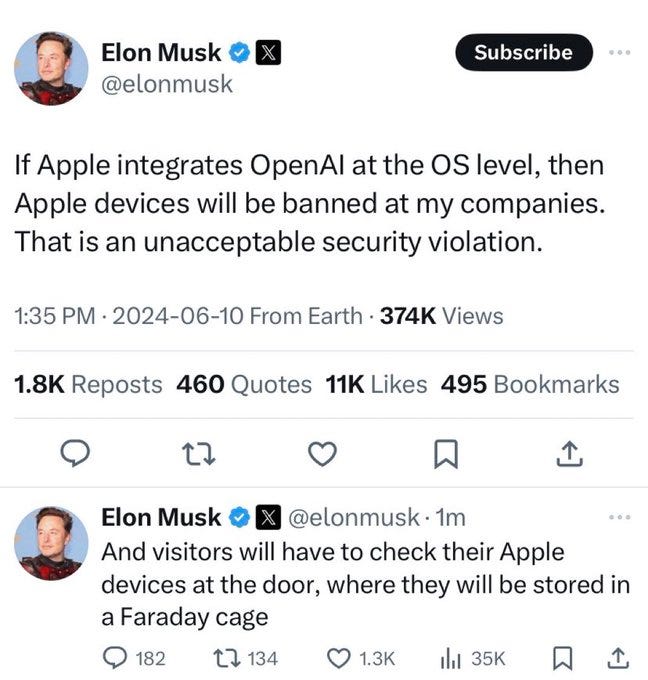
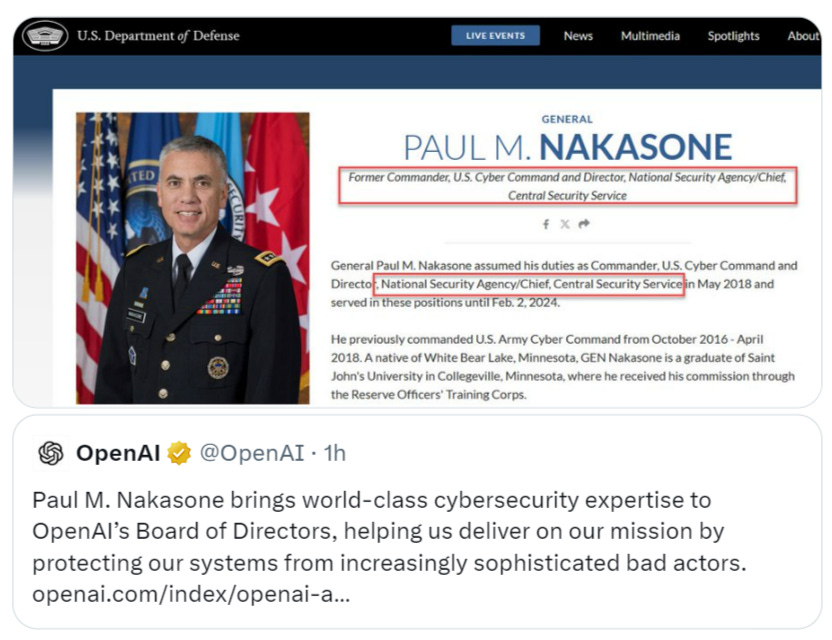
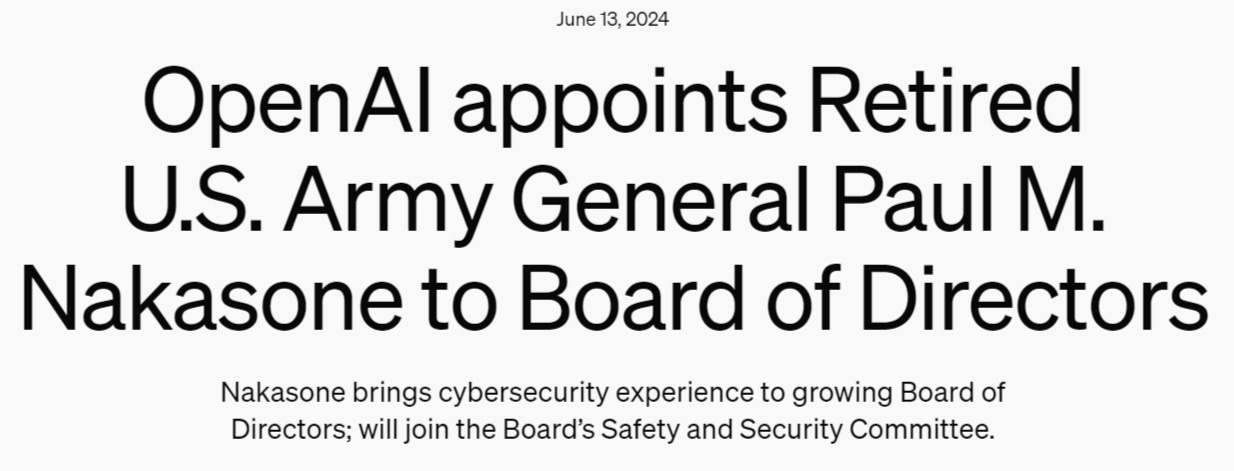
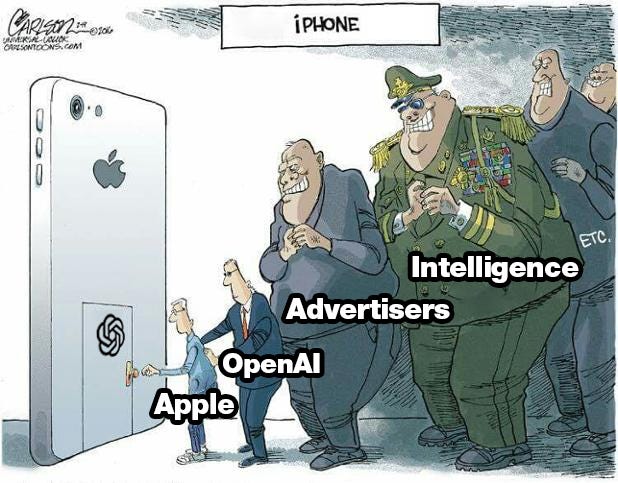
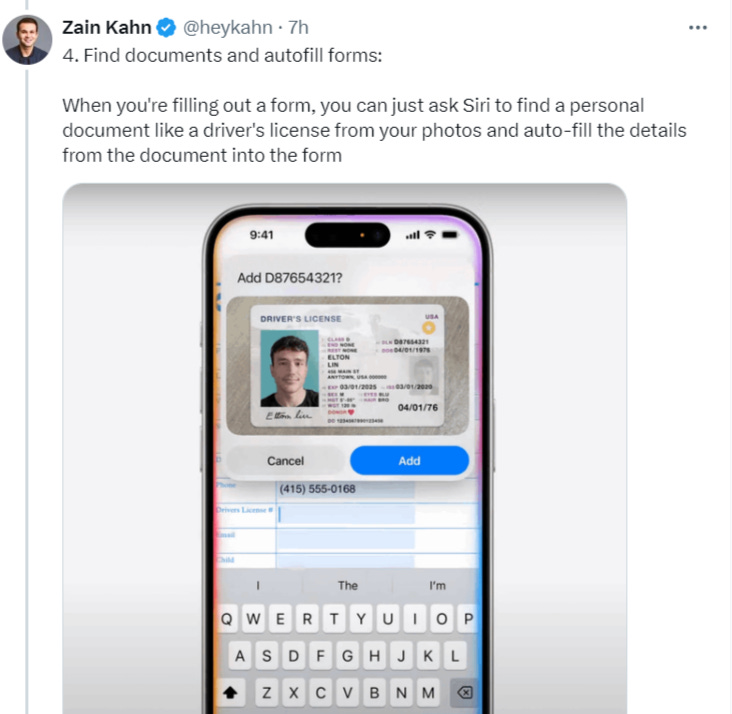
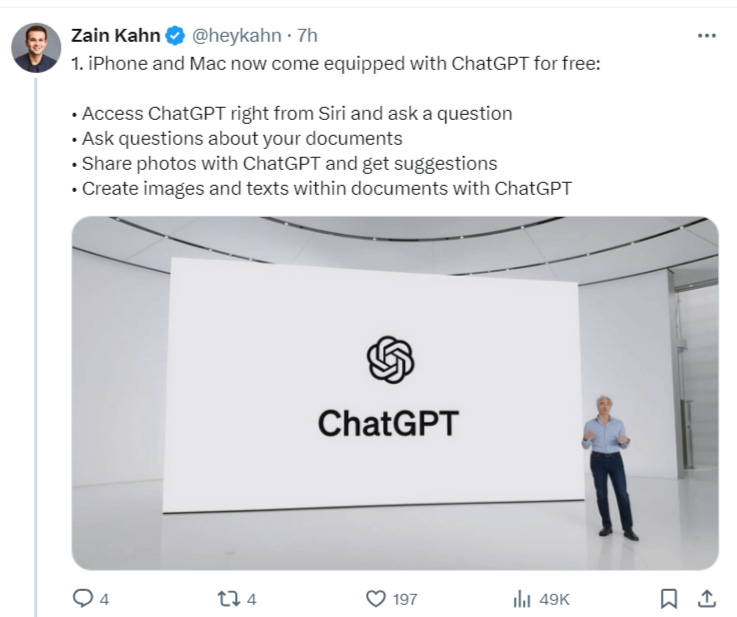



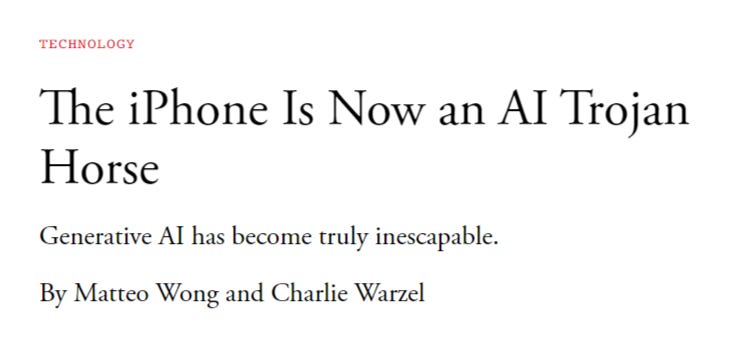

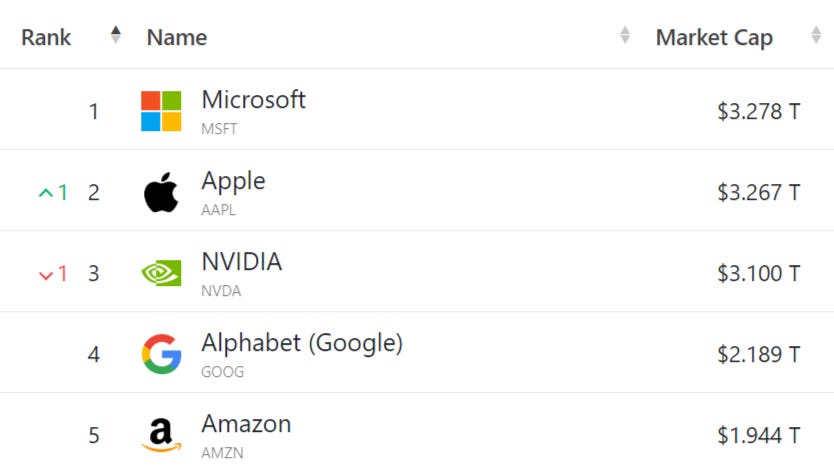
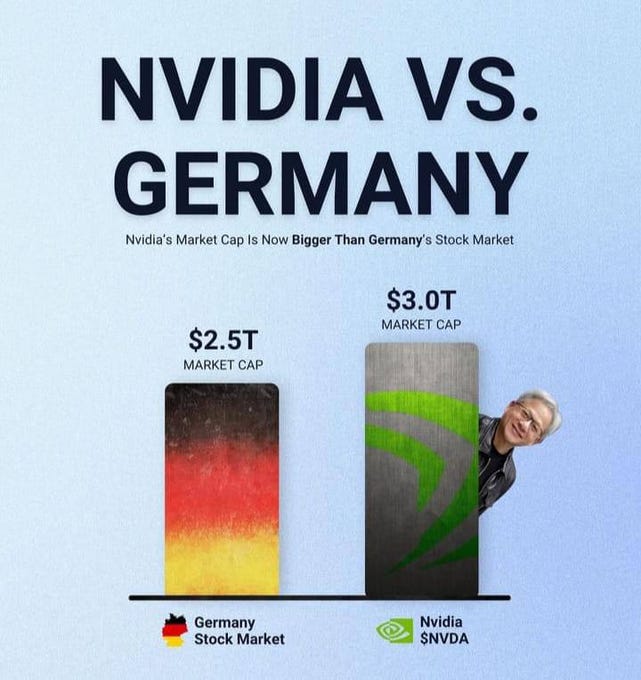



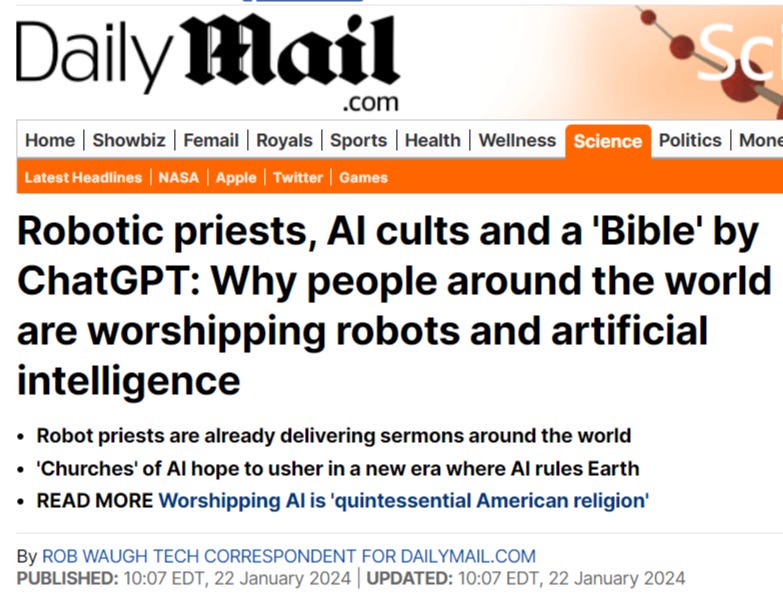





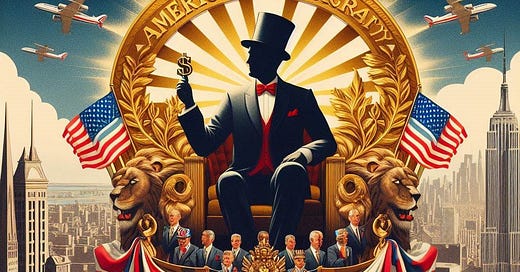





I spent 40 years working in product development R&D for American and Swiss companies. I watched as the culture of these corporations degraded over that period into personality cults for their (grossly over paid) leaders. Then the emphasis changes slowly to the companies' entities themselves. Worship the name of the corporation. The results in terms of the functionality of the products was unimportant. (Witness the number of EV/Scooter fires in Li battery suppled EVs. Whether the EV's had actual utility as a means of transportation was unimportant.) Whether the product worked was not important. Then finally, the GDP of Western countries became of measure of how many people a day made spam calls to me trying to sell me nothing. Need an engineering degree? No problem. The fact that the content of such a degree was equivalent to a Hong Kong middle school education is unimportant. And we are still on the slope.
It is not just AI that is the problem, Simplicius, it is also robots and drones. When these things are advanced enough, many jobs at the low end will be lost. What will those human beings do? You mentioned UBI, and I suppose that is better than nothing.
But consider what will happen to a society where there are no jobs at the low end for humans. Do you think it will remain a stable society? Or will it degenerate into widespread violence and crime? What do people who have lost their ability to earn an income because of AI, drones, and robots do to survive?
It is not going to be some sort of technological utopia, despite what the tech tyrants might think. There will be a cost to all of it, and it's not going to be pretty to see. Governments will have to pay, one way or another, or suffer the consequences when the people at the low end find there are no jobs anywhere for them.
Consider this also: what of unlimited immigration? Illegal aliens are already driving down wages, but what happens when those people find they aren't needed either? Do you see where I'm going with this? It's all going to be uglier and more violent than anybody has imagined so far.